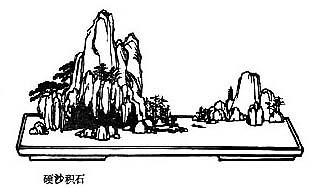孫
子
兵
法
Sun Zi 
 – L'Art de la guerre
– L'Art de la guerre
La stratégie chinoise ou comment s'informer, estimer, diviser, détourner, tromper, et vaincre « sans coup férir ». Tr. Amiot (fr) et Giles (en).
Des neufs sortes de terrain
Sunzi XI. 19.
Procurez-vous pacifiquement tous les secours dont vous aurez besoin ; n'employez la force que lorsque les autres voies auront été inutiles ; faites en sorte que les habitants des villages et de la campagne puissent trouver leurs intérêts à venir d'eux-mêmes vous offrir leurs denrées ; mais, je le répète, que vos troupes ne soient jamais divisées. Tout le reste étant égal, on est plus fort de moitié lorsqu'on combat chez soi. Si vous combattez chez l'ennemi, ayez égard à cette maxime, surtout si vous êtes un peu avant dans ses États : conduisez alors votre armée entière ; faites toutes vos opérations militaires dans le plus grand secret, je veux dire qu'il faut empêcher qu'aucun ne puisse pénétrer vos desseins : il suffit qu'on sache ce que vous voulez faire quand le temps de l'exécuter sera arrivé. Il peut arriver que vous soyez réduit quelquefois à ne savoir où aller, ni de quel côté vous tourner ; dans ce cas ne précipitez rien, attendez tout du temps et des circonstances, soyez inébranlable dans le lieu où vous êtes.
Amiot
Carefully study the well-being of your men,1 and do not overtax them. Concentrate your energy and hoard your strength.2 Keep your army continually on the move,3 and devise unfathomable plans.
Giles XI.22.

L'Art de la guerre – Sun Zi XI. 19. – Chinois on/off – Français/English
Alias Sun Tzu, Sun Wu, Sun Tse, Sunzi Bingfa, Souen Tseu, Souen Wou, 孫武.
Le Canon des Poèmes, Les Entretiens, La Grande Étude, Le Juste Milieu, Les Trois Caractères, Le Livre des Mutations, De la Voie et la Vertu, 300 poèmes Tang, L'Art de la guerre, Trente-six stratagèmes
Bienvenue, aide, notes, introduction, table.
Index – Contact – Haut de page
